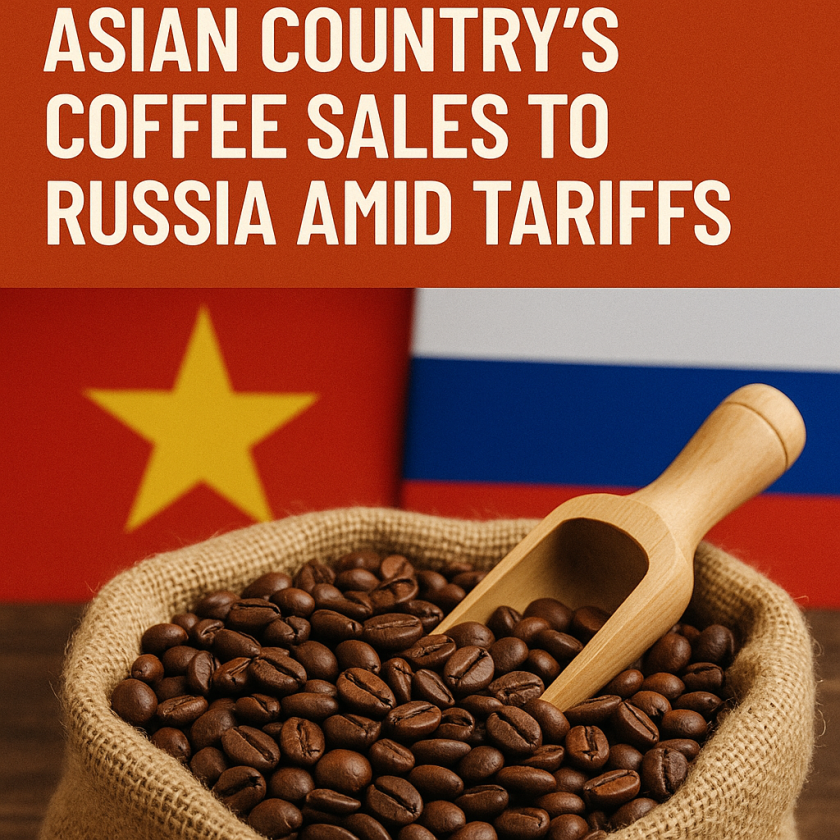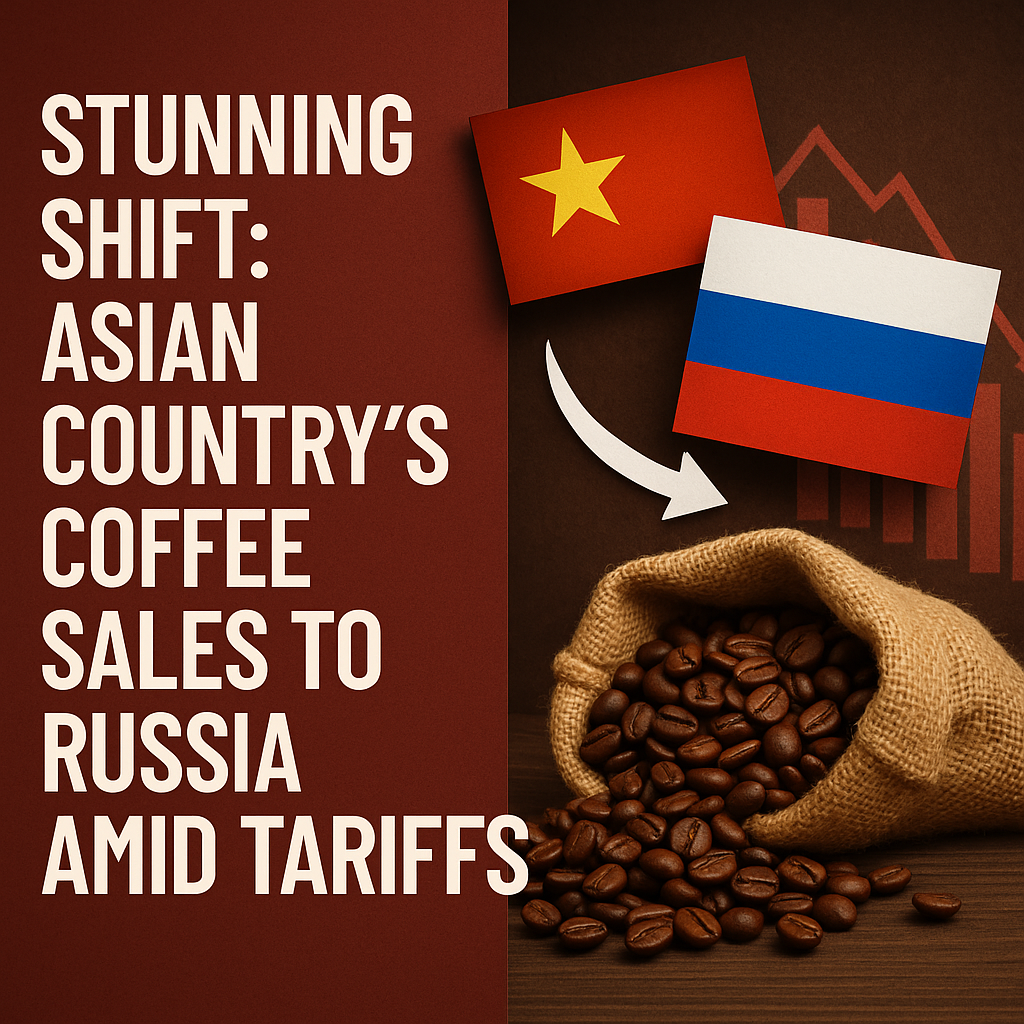Stunning Shift: Asian Country’s Coffee Sales to Russia Amid Tariffs
The Stunning Shift: Asian Country’s Coffee Sales to Russia Amid Tariffs

The landscape of global trade is constantly evolving, and a stunning shift has recently captured attention—with an Asian country strategically rerouting its coffee sales to Russia despite significant tariffs. This development raises questions about economic resilience, global geopolitics, and market adaptation, reflecting a complex web of challenges and opportunities.
The Context Behind Coffee Sales to Russia
Recent reports indicate that Vietnam is redirecting its coffee exports to Russia in response to the punitive tariffs imposed by Western nations. After the onset of the Ukraine conflict, numerous countries enacted sanctions against Russia, severely impacting its import options. Coffee, a staple commodity for many, symbolizes not only a beverage enjoyed globally but also a significant economic player within international trade. Vietnam, as one of the world’s largest coffee producers, is uniquely positioned to capitalize on this shift.
According to Al Jazeera, the Vietnamese government is redirecting its trade partnerships, which historically leaned towards Western markets, to maintain its economic momentum. This move indicates not just a response to immediate market fluctuations but also a long-term strategy to navigate the geopolitical landscape.
Economic Implications and Opportunities
The Impact of Sanctions
The sanctions against Russia have reshaped its trade relationships. With coffee previously sourced from Brazil and Colombia now facing significant import restrictions, Vietnam’s decision creates a unique opportunity. Vietnam’s coffee is not just solubly competitive in taste but also in pricing, which could appeal to Russian consumers seeking alternatives in a constrained market.
Reports from RT highlight how this shift signifies a broader trend where countries facing sanctions adapt by seeking new trade partnerships. The Russian economy, challenged yet resilient, has begun to pivot towards Asian markets not only for coffee but for various commodities. Analysts suggest that this could lead to a more sustained trade exchange between Vietnam and Russia, creating avenues for both economic growth and diversification.
Challenges Ahead
Navigating Tariffs and Trade Relationships
Despite the optimism surrounding this shift, several challenges loom. High tariffs imposed on Russian imports have made trade complicated, effectively increasing the cost of entry for many products. While Vietnamese coffee can potentially fill the gap left by Western suppliers, cost management remains critical.
Moreover, as a piece from Sky News notes, the geopolitical climate remains unstable. Russia’s reliance on imported goods, coupled with sanctions, means that any sudden policy shift could render current trade agreements fragile. Stakeholders in Vietnam’s coffee sector face the dual challenge of maximizing profits while developing a sustainable logistics and distribution model in a complex international environment.
Future of Coffee Trade
A New Paradigm?
The rerouting of coffee sales from Vietnam to Russia highlights a significant and potentially transformative trend in international trade. While Western markets may have turned their backs on Russia, emerging economies are stepping up to fill the void. This paradigm shift raises questions about the future of global trade alliances. Will more countries follow suit and redirect their exports to Russia, or will the global landscape stabilize as sanctions evolve or expire?
It’s crucial to note that uncertainties remain prominent. While Vietnam seems to benefit currently, there is no guarantee of a lasting alignment in trade dynamics. The volatility of Russia’s economic condition amidst geopolitical tensions could drastically alter these interactions. Industry experts will need to keep a close eye on this situation, weighing risks against the potential for increased trade with non-Western markets.
Conclusion: Adapting to Change
The decision by Vietnam to rechannel coffee sales to Russia amidst tariffs is a compelling narrative of resilience and adaptation in global trade. This shift serves as a reminder that the world economy is intricately connected, where nations continuously adapt to geopolitical pressures. While this move may hold promise for both Vietnam and Russia, ongoing challenges related to tariffs, economic instability, and shifting global alliances will remain imperative in understanding the future of trade in coffee and beyond.
As this story develops, it will be vital to monitor how these dynamics evolve, offering lessons in flexibility and strategic adaptation within a complex global marketplace.






































